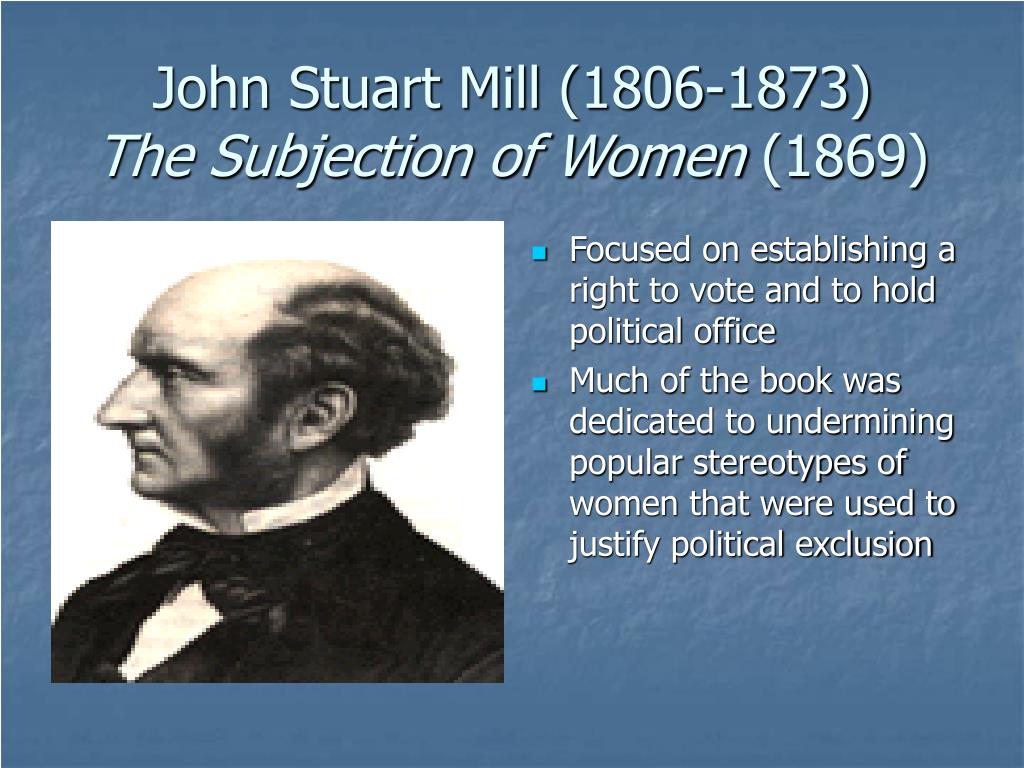


You can help us out by revising, improving and updatingĪfter you claim a section you’ll have 24 hours to send in a draft. He ends the book with an exploration of a few of his favorite powerful women, Elizabeth I, Victoria, and even Joan of Arc. He mentions the problem of the vote and notices that since women constitute half the population, that the removal of their political opinions was both tyrannical and against the ideas of democracy. He also includes here a defense of the home life of women, saying that although men would like to assume that they would dislike their wives if they were equals, they would actually probably like them a lot more, because by allowing their wives to be real people, their friendships can begin with women as intellectual equals.įinally, he attacks marriage law for placing restrictions on wives to submit them to a type of slavery. He also argues that by educating women, we expedite the progress of man by introducing more chance for breakthrough and learning. He says that by allowing women to participate in trade, there can be the free trade of the commodities that women would like to introduce. He then offers a threefold utilitarian response to the problem of sexism. In other words, nature will limit women to whatever extent it does limit women, and men don't need to be involved in that process at all. Therefore it would be illogical to assume that women need to be protected from trying things, since failure is a built in response to the lack of capacity. He continues by arguing that women will be able to do by their nature whatever nature intended for them to be able to do. Therefore, he concludes that sexism is a conclusion drawn by spurious logic. He says that this assumption has no supporting evidence because men have never allowed women to have a fair shot and try things to see how good they really are. Mill begins by addressing the assumption that women are the inferior sex, being less intelligent and less skilled by nature. Written by rintu das das, samir gorai, Nishi Kumari, parinita borkakoty, molly hegberg and other people who wish to remain anonymous We are thankful for their contributions and encourage you to make your own. These notes were contributed by members of the GradeSaver community.


 0 kommentar(er)
0 kommentar(er)
